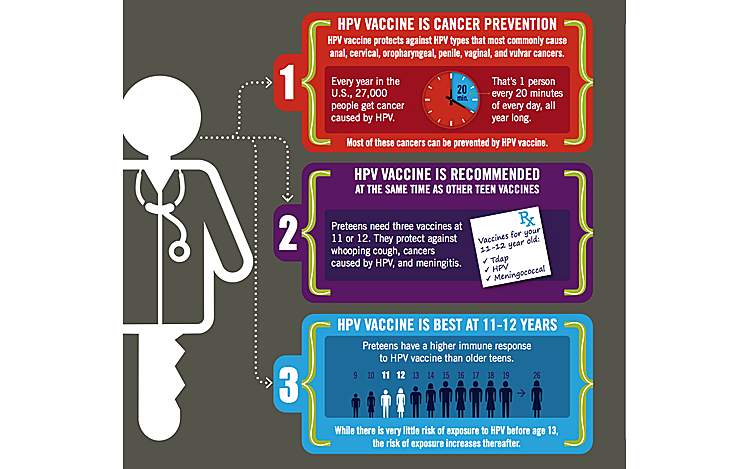A CHILDREN’S CARTOON from the 1980s used to end each broadcast with the phrase, “Knowing is half the battle.” Of course, the other half of the battle is usually acting on the knowledge. In the world of healthcare, information abounds. It is important for patients to know their health status and attend regular checkups.
One of the growing health concerns in the United States is a sexually transmitted infection known as Human Papillomavirus (HPV). This is the most common sexually transmitted infection in the United States.
HPV is a common virus that can cause cancer and genital warts. This virus is spread through sexual contact with someone who has the virus, even if the person shows no symptoms. Anyone who is sexually active can get HPV and could possibly develop symptoms years afterward, making it difficult to determine when one became infected. In some cases, HPV goes away on its own and does not cause any health problems. However, in other cases, if the infection persists and is not treated, it can lead to genital warts and cancer.
HPV is the major cause of cervical cancer in women and is also associated with several other types of cancer in both men and women, including oral and throat cancer. According to the CDC, about 79 million Americans are currently infected with HPV and approximately 14 million new people become infected each year. Here are a couple of steps you can take to protect yourself against HPV.
First, get vaccinated. Did you know there is a vaccine against this sexually transmitted infection? The vaccine is safe and effective, recommended for both males and females in the appropriate age group. All boys and girls, ages 11 and 12, are encouraged to get vaccinated. If persons were not vaccinated when they were younger, catch-up vaccines are available for males up to 21 years old and females up to 26 years old. The vaccine is also recommended for persons with a compromised immune system, including persons living with HIV/AIDs if they were not vaccinated when they were younger.
Also, get screened for cervical cancer. Routine screening, such as pap smears, for women aged 21 to 65 years old can prevent cervical cancer.
Lastly, if you are sexually active, use a latex condom. However, since HPV infects areas not covered by condoms, it does not provide full protection but can lessen your chances of contracting the virus. Abstinence is the only 100 percent effective means of preventing the virus.
By taking the simple steps of getting vaccinated, limiting the number of sexual partners, and properly using condoms, we can begin to lower the number of HPV infections. Get tested today and know your health status, because arming yourself with this knowledge is great, but it’s only half the battle.
CREDIT
article by DR. ULYEE CHOE
ABOUT THE AUTHOR: Dr. Ulyee Choe, an infectious disease physician, serves the community as director of the Florida Department of Health in Polk County (FDOH-Polk) and as a Polk County Medical Association member. For more information about FDOH-Polk, visit www.mypolkhealth.net.
